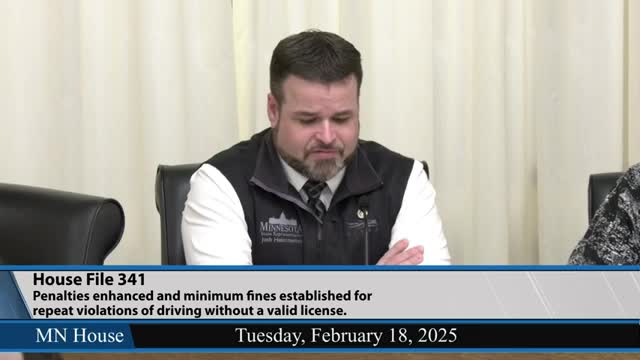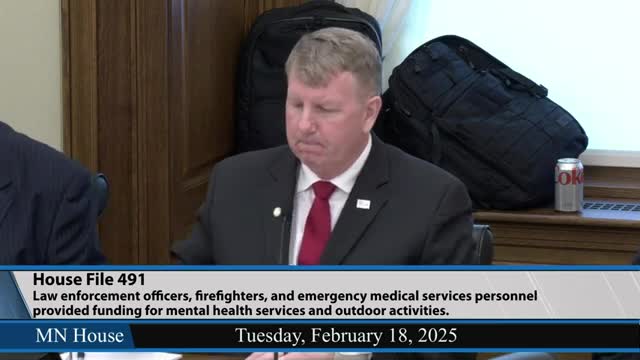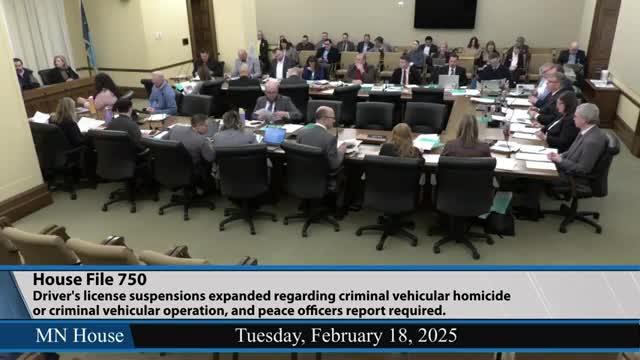Article not found
This article is no longer available. But don't worry—we've gathered other articles that discuss the same topic.

Committee refers bill to increase penalties for driving on suspended or revoked licenses after injury or repeated offenses

Committee lays over $ request for Hometown Heroes Outdoors after testimony on outdoor mental-health programs for first responders

